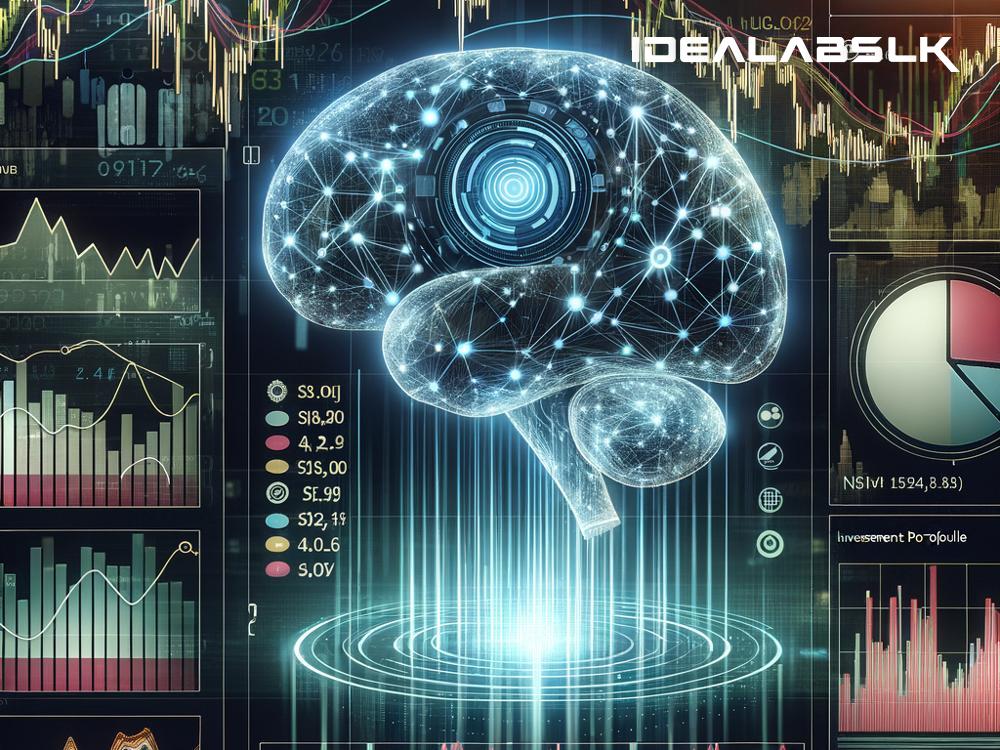Title: AI for Trading: Simplifying Investment Portfolio Management
In today's fast-paced financial world, managing an investment portfolio can feel like trying to catch a series of speeding trains with your bare hands. Between rapidly changing market conditions, endless data streams, and the need to make quick, informed decisions, it's easy to feel overwhelmed. However, what if there was a way to not only catch those trains but to do so with precision, foresight, and a significantly lower risk of getting burned? Enter the era of AI for trading—where technology meets traditional investment to revolutionize portfolio management.
Understanding AI in Trading
AI, or Artificial Intelligence, in the realm of trading refers to the use of computer algorithms that can analyze, predict, and execute trades at a speed and efficiency far beyond human capabilities. These aren't just basic algorithms; they're sophisticated systems capable of learning and adapting over time, improving their forecasts and decisions based on new data.
How AI Optimizes Portfolio Management
Imagine having a personal financial advisor who never sleeps, has an impeccable memory for market trends, and can process and analyze vast amounts of data in the blink of an eye. That's what AI brings to the table. Here's how it's changing the game for investors:
-
Enhanced Data Analysis: AI systems can sift through enormous datasets—ranging from market prices to social media sentiment—instantly. This comprehensive analysis allows investors to capture a 360-degree view of the market, leading to more informed decisions.
-
Predictive Insights: Through machine learning, AI algorithms can identify patterns and predict market movements before they happen. This predictive power can significantly increase the chances of making profitable trades.
-
Risk Management: By analyzing historical data and current market conditions, AI can evaluate the risk levels of certain investments. This means portfolios can be adjusted in real-time to minimize losses and optimize returns.
-
Emotionless Trading: One of the biggest hurdles in trading is emotional decision-making. Fear and greed can lead to costly mistakes. AI, devoid of emotion, makes decisions based purely on data, leading to more rational and strategic trading.
-
Diversification: AI can identify a wider range of investment opportunities across global markets, enabling portfolios to be more diversified. This spreads risk and can lead to a healthier, more resilient investment portfolio.
Real-World Applications and Successes
From Wall Street giants to fintech startups, the finance world is increasingly leaning on AI to stay competitive. One notable example is the use of AI by hedge funds to trade billions of dollars worth of assets, with some funds attributing the majority of their profits to AI-driven strategies. Moreover, robo-advisors—digital platforms that provide automated, algorithm-driven financial planning services—are making AI-driven portfolio management accessible to the average investor, not just the elite.
The Future of AI in Trading
As AI technology continues to evolve, its impact on the trading world is expected to grow. Future advancements could lead to even more accurate predictive models, the seamless integration of global economic factors into trading algorithms, and perhaps even machine learning models that can understand and adapt to human emotional states affecting the market.
Challenges and Considerations
While AI offers enormous potential to transform portfolio management, it's not without its challenges. Data privacy concerns, the need for transparent algorithms, and the potential for system errors are all important considerations. Moreover, the reliance on AI necessitates a deeper understanding of how these systems work, to avoid over-reliance on technology without human oversight.
Conclusion
AI in trading represents a significant leap forward in how we manage investment portfolios. By harnessing the power of advanced algorithms, investors can optimize their strategies, better manage risks, and strive for higher returns. However, it's crucial to approach this new frontier with a balance of enthusiasm and caution, understanding the capabilities and potential pitfalls of AI-driven trading. As we stand on the cusp of this technological revolution, the future of investment portfolio management looks not just more intelligent, but infinitely more promising.

